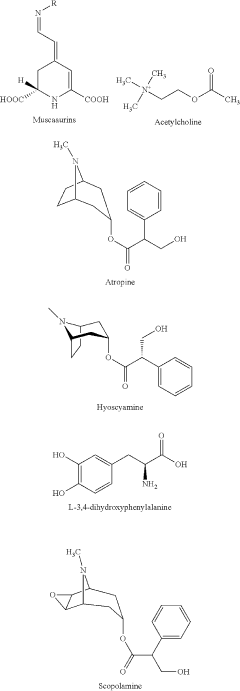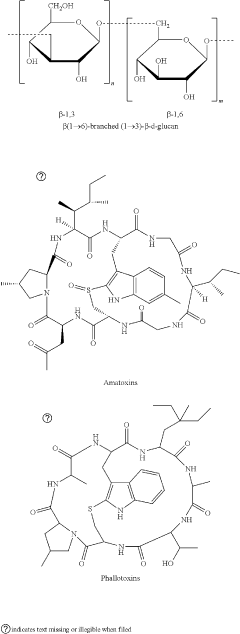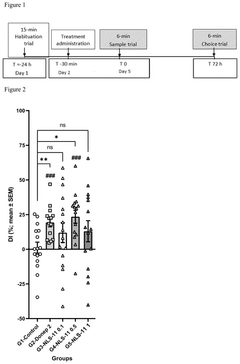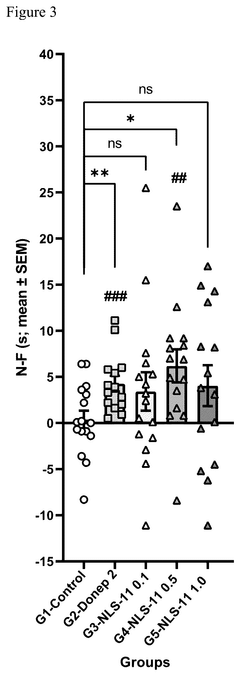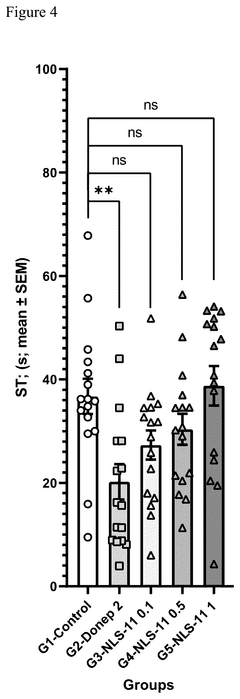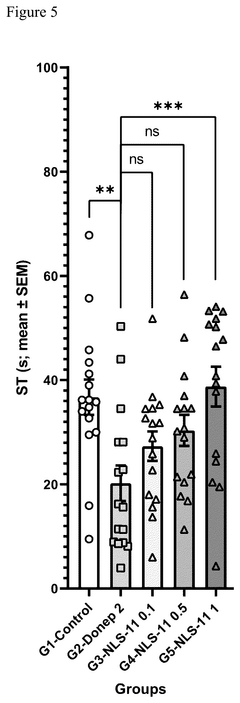How Is Muscimol Involved in Neurochemical Regulation?
JUL 4, 20258 MIN READ
Generate Your Research Report Instantly with AI Agent
Patsnap Eureka helps you evaluate technical feasibility & market potential.
Muscimol Neurobiology
Muscimol, a potent GABA receptor agonist, plays a crucial role in neurochemical regulation within the central nervous system. This naturally occurring psychoactive compound is derived from various species of mushrooms, particularly those belonging to the Amanita genus. Its primary mechanism of action involves binding to GABA-A receptors, which are the main inhibitory neurotransmitter receptors in the brain.
The interaction between muscimol and GABA-A receptors leads to increased chloride ion influx into neurons, resulting in hyperpolarization and reduced neuronal excitability. This inhibitory effect is fundamental to muscimol's involvement in neurochemical regulation, as it modulates the balance between excitatory and inhibitory neurotransmission in the brain.
Muscimol's high affinity for GABA-A receptors makes it a valuable tool in neuroscience research, allowing scientists to study the GABAergic system and its effects on various neurological processes. Its potent agonist activity has been utilized to investigate the role of GABA in anxiety, sleep regulation, and cognitive functions.
In the context of neurochemical regulation, muscimol's effects extend beyond simple inhibition. It has been shown to influence the release and reuptake of other neurotransmitters, including dopamine and serotonin, through indirect mechanisms. This cross-talk between neurotransmitter systems highlights the complex nature of neurochemical regulation and the far-reaching impact of GABAergic modulation.
Research has demonstrated that muscimol can affect various brain regions, including the hippocampus, amygdala, and prefrontal cortex. These areas are involved in memory formation, emotional processing, and executive functions, respectively. By modulating neuronal activity in these regions, muscimol contributes to the regulation of cognitive processes and emotional states.
The study of muscimol's effects on neurochemical regulation has also provided insights into potential therapeutic applications. Its anxiolytic and sedative properties have sparked interest in developing novel treatments for anxiety disorders and sleep disturbances. Additionally, research into muscimol's neuroprotective effects suggests potential applications in preventing neuronal damage in conditions such as stroke or neurodegenerative diseases.
Understanding the role of muscimol in neurochemical regulation is crucial for advancing our knowledge of brain function and developing new therapeutic strategies. As research in this field progresses, it continues to unveil the intricate mechanisms by which this compound influences neural circuits and contributes to the complex tapestry of neurochemical interactions in the brain.
The interaction between muscimol and GABA-A receptors leads to increased chloride ion influx into neurons, resulting in hyperpolarization and reduced neuronal excitability. This inhibitory effect is fundamental to muscimol's involvement in neurochemical regulation, as it modulates the balance between excitatory and inhibitory neurotransmission in the brain.
Muscimol's high affinity for GABA-A receptors makes it a valuable tool in neuroscience research, allowing scientists to study the GABAergic system and its effects on various neurological processes. Its potent agonist activity has been utilized to investigate the role of GABA in anxiety, sleep regulation, and cognitive functions.
In the context of neurochemical regulation, muscimol's effects extend beyond simple inhibition. It has been shown to influence the release and reuptake of other neurotransmitters, including dopamine and serotonin, through indirect mechanisms. This cross-talk between neurotransmitter systems highlights the complex nature of neurochemical regulation and the far-reaching impact of GABAergic modulation.
Research has demonstrated that muscimol can affect various brain regions, including the hippocampus, amygdala, and prefrontal cortex. These areas are involved in memory formation, emotional processing, and executive functions, respectively. By modulating neuronal activity in these regions, muscimol contributes to the regulation of cognitive processes and emotional states.
The study of muscimol's effects on neurochemical regulation has also provided insights into potential therapeutic applications. Its anxiolytic and sedative properties have sparked interest in developing novel treatments for anxiety disorders and sleep disturbances. Additionally, research into muscimol's neuroprotective effects suggests potential applications in preventing neuronal damage in conditions such as stroke or neurodegenerative diseases.
Understanding the role of muscimol in neurochemical regulation is crucial for advancing our knowledge of brain function and developing new therapeutic strategies. As research in this field progresses, it continues to unveil the intricate mechanisms by which this compound influences neural circuits and contributes to the complex tapestry of neurochemical interactions in the brain.
Clinical Applications
Muscimol, a potent GABA receptor agonist, has shown promising potential in various clinical applications due to its involvement in neurochemical regulation. One of the primary areas of interest is in the treatment of epilepsy. By enhancing GABAergic inhibition, muscimol can potentially reduce seizure activity and improve overall seizure control in patients with refractory epilepsy. Clinical trials have explored the use of muscimol-based therapies as adjunctive treatments for patients who have not responded well to conventional antiepileptic drugs.
Another significant clinical application of muscimol is in the field of anxiety disorders. The anxiolytic effects of muscimol, mediated through its action on GABA receptors, have been investigated for the treatment of generalized anxiety disorder, panic disorder, and social anxiety disorder. Preliminary studies have shown that muscimol-based interventions may offer a novel approach to managing these conditions, particularly in cases where traditional anxiolytics have proven ineffective or poorly tolerated.
In the realm of sleep disorders, muscimol's ability to modulate GABAergic transmission has led to investigations into its potential as a sleep aid. Researchers have explored the use of muscimol in treating insomnia and improving sleep quality. While still in early stages, these studies suggest that muscimol-based therapies could offer an alternative to existing sleep medications, potentially with fewer side effects and less risk of dependence.
Muscimol's neuroprotective properties have also garnered attention in the context of neurodegenerative disorders. Preclinical studies have demonstrated that muscimol may help reduce neuronal damage and inflammation associated with conditions such as Alzheimer's disease and Parkinson's disease. This has led to early-phase clinical trials exploring the potential of muscimol-derived compounds in slowing disease progression and improving cognitive function in patients with these disorders.
In the field of pain management, muscimol's ability to modulate neuronal excitability has been investigated for its potential analgesic effects. Researchers have explored the use of muscimol in treating chronic pain conditions, including neuropathic pain and fibromyalgia. While still in experimental stages, these studies suggest that muscimol-based therapies could offer a novel approach to pain management, particularly in cases where conventional analgesics have proven ineffective.
The clinical applications of muscimol extend to the treatment of substance use disorders as well. Preclinical studies have shown that muscimol may help reduce drug-seeking behavior and withdrawal symptoms associated with various substances of abuse, including alcohol and opioids. This has led to early-stage clinical trials investigating the potential of muscimol-based interventions in addiction treatment programs.
Another significant clinical application of muscimol is in the field of anxiety disorders. The anxiolytic effects of muscimol, mediated through its action on GABA receptors, have been investigated for the treatment of generalized anxiety disorder, panic disorder, and social anxiety disorder. Preliminary studies have shown that muscimol-based interventions may offer a novel approach to managing these conditions, particularly in cases where traditional anxiolytics have proven ineffective or poorly tolerated.
In the realm of sleep disorders, muscimol's ability to modulate GABAergic transmission has led to investigations into its potential as a sleep aid. Researchers have explored the use of muscimol in treating insomnia and improving sleep quality. While still in early stages, these studies suggest that muscimol-based therapies could offer an alternative to existing sleep medications, potentially with fewer side effects and less risk of dependence.
Muscimol's neuroprotective properties have also garnered attention in the context of neurodegenerative disorders. Preclinical studies have demonstrated that muscimol may help reduce neuronal damage and inflammation associated with conditions such as Alzheimer's disease and Parkinson's disease. This has led to early-phase clinical trials exploring the potential of muscimol-derived compounds in slowing disease progression and improving cognitive function in patients with these disorders.
In the field of pain management, muscimol's ability to modulate neuronal excitability has been investigated for its potential analgesic effects. Researchers have explored the use of muscimol in treating chronic pain conditions, including neuropathic pain and fibromyalgia. While still in experimental stages, these studies suggest that muscimol-based therapies could offer a novel approach to pain management, particularly in cases where conventional analgesics have proven ineffective.
The clinical applications of muscimol extend to the treatment of substance use disorders as well. Preclinical studies have shown that muscimol may help reduce drug-seeking behavior and withdrawal symptoms associated with various substances of abuse, including alcohol and opioids. This has led to early-stage clinical trials investigating the potential of muscimol-based interventions in addiction treatment programs.
Neurochemical Challenges
The field of neurochemical regulation faces several significant challenges in understanding the role of muscimol. One of the primary obstacles is the complexity of neurotransmitter systems and their interactions. Muscimol, as a potent GABA receptor agonist, influences multiple neural pathways, making it difficult to isolate its specific effects on neurochemical regulation.
Another challenge lies in the variability of muscimol's effects across different brain regions and cell types. The distribution and density of GABA receptors vary throughout the central nervous system, leading to diverse and sometimes contradictory responses to muscimol administration. This heterogeneity complicates the development of targeted therapeutic interventions and necessitates region-specific studies.
The temporal dynamics of muscimol's action present an additional hurdle. Short-term and long-term effects of muscimol exposure can differ significantly, with potential implications for neuroplasticity and synaptic remodeling. Researchers must grapple with designing experiments that capture both immediate and delayed consequences of muscimol-induced GABAergic activation.
Furthermore, the interplay between muscimol and other neurotransmitter systems poses a considerable challenge. While primarily acting on GABA receptors, muscimol's effects can indirectly influence the release and activity of other neurotransmitters, such as glutamate, dopamine, and serotonin. Unraveling these complex interactions requires sophisticated experimental designs and advanced analytical techniques.
The blood-brain barrier (BBB) presents a significant obstacle in studying muscimol's effects on neurochemical regulation. The limited permeability of muscimol across the BBB necessitates the development of novel delivery methods or chemical modifications to enhance its bioavailability in the central nervous system. This challenge is particularly relevant for translating preclinical findings into potential therapeutic applications.
Additionally, the potential for tolerance and desensitization to muscimol's effects complicates long-term studies and therapeutic strategies. Chronic exposure to muscimol may lead to adaptive changes in GABA receptor expression and function, altering the neurochemical landscape and potentially masking or exacerbating certain regulatory mechanisms.
Lastly, the ethical considerations and limitations of human studies in this field pose significant challenges. While animal models provide valuable insights, translating these findings to human neurochemical regulation requires careful consideration of species differences and the development of non-invasive imaging techniques to study muscimol's effects in the human brain.
Another challenge lies in the variability of muscimol's effects across different brain regions and cell types. The distribution and density of GABA receptors vary throughout the central nervous system, leading to diverse and sometimes contradictory responses to muscimol administration. This heterogeneity complicates the development of targeted therapeutic interventions and necessitates region-specific studies.
The temporal dynamics of muscimol's action present an additional hurdle. Short-term and long-term effects of muscimol exposure can differ significantly, with potential implications for neuroplasticity and synaptic remodeling. Researchers must grapple with designing experiments that capture both immediate and delayed consequences of muscimol-induced GABAergic activation.
Furthermore, the interplay between muscimol and other neurotransmitter systems poses a considerable challenge. While primarily acting on GABA receptors, muscimol's effects can indirectly influence the release and activity of other neurotransmitters, such as glutamate, dopamine, and serotonin. Unraveling these complex interactions requires sophisticated experimental designs and advanced analytical techniques.
The blood-brain barrier (BBB) presents a significant obstacle in studying muscimol's effects on neurochemical regulation. The limited permeability of muscimol across the BBB necessitates the development of novel delivery methods or chemical modifications to enhance its bioavailability in the central nervous system. This challenge is particularly relevant for translating preclinical findings into potential therapeutic applications.
Additionally, the potential for tolerance and desensitization to muscimol's effects complicates long-term studies and therapeutic strategies. Chronic exposure to muscimol may lead to adaptive changes in GABA receptor expression and function, altering the neurochemical landscape and potentially masking or exacerbating certain regulatory mechanisms.
Lastly, the ethical considerations and limitations of human studies in this field pose significant challenges. While animal models provide valuable insights, translating these findings to human neurochemical regulation requires careful consideration of species differences and the development of non-invasive imaging techniques to study muscimol's effects in the human brain.
Current Muscimol Mechanisms
01 GABA receptor modulation
Muscimol acts as a potent GABA receptor agonist, particularly at GABA-A receptors. This interaction leads to increased inhibitory neurotransmission in the central nervous system, resulting in various neurochemical and behavioral effects. The modulation of GABA receptors by muscimol has implications for anxiety reduction, sedation, and potential therapeutic applications in neurological disorders.- Muscimol-based neurochemical regulation for therapeutic applications: Muscimol, a GABA receptor agonist, is utilized in various therapeutic applications for neurochemical regulation. It can be formulated into pharmaceutical compositions to treat neurological disorders, anxiety, and sleep disturbances. The compound's ability to modulate GABAergic signaling makes it a valuable tool in neuroscience research and potential clinical interventions.
- Neuromodulation techniques incorporating muscimol: Advanced neuromodulation techniques incorporate muscimol to achieve targeted neurochemical regulation. These methods may involve controlled delivery systems, such as implantable devices or transdermal patches, to administer muscimol directly to specific brain regions. This approach allows for precise manipulation of neural circuits and potentially treats conditions like epilepsy or movement disorders.
- Muscimol in combination with other neuroactive compounds: Research explores the synergistic effects of combining muscimol with other neuroactive compounds to enhance neurochemical regulation. These combinations may include natural or synthetic substances that complement muscimol's action on GABA receptors or target different neurotransmitter systems. Such approaches aim to improve therapeutic outcomes and reduce side effects in treating complex neurological conditions.
- Novel delivery methods for muscimol-based therapies: Innovative delivery methods are being developed to optimize the administration of muscimol for neurochemical regulation. These may include nanoparticle-based systems, engineered biomaterials, or advanced drug-device combinations. The goal is to enhance the bioavailability of muscimol, improve its targeting to specific neural tissues, and allow for controlled release over extended periods.
- Muscimol-mediated neuroplasticity and cognitive enhancement: Emerging research investigates the potential of muscimol in promoting neuroplasticity and cognitive enhancement. By modulating GABAergic signaling, muscimol may influence synaptic plasticity, neurogenesis, and cognitive processes. This avenue of study explores the compound's applications in improving learning, memory, and overall cognitive function, potentially benefiting both healthy individuals and those with cognitive impairments.
02 Neurotransmitter release regulation
Muscimol influences the release and reuptake of various neurotransmitters beyond GABA. This regulation affects the balance of excitatory and inhibitory signaling in the brain, potentially impacting cognitive functions, mood, and motor control. The compound's ability to modulate neurotransmitter systems makes it a valuable tool in neuropharmacological research and potential therapeutic development.Expand Specific Solutions03 Neuroprotective effects
Research suggests that muscimol may have neuroprotective properties. Its action on GABA receptors can reduce excitotoxicity and oxidative stress in neurons, potentially offering protection against neurodegenerative processes. This neuroprotective effect is being explored in the context of various neurological conditions, including stroke, epilepsy, and neurodegenerative diseases.Expand Specific Solutions04 Neuroplasticity modulation
Muscimol's interaction with GABA systems may influence neuroplasticity, the brain's ability to form and reorganize synaptic connections. This modulation of neuroplasticity could have implications for learning, memory formation, and recovery from brain injuries. Researchers are investigating how muscimol-induced changes in neuroplasticity might be harnessed for therapeutic purposes.Expand Specific Solutions05 Neuroendocrine regulation
Muscimol's effects extend to neuroendocrine regulation, influencing the release of hormones controlled by the hypothalamus and pituitary gland. This interaction with the neuroendocrine system can affect stress responses, circadian rhythms, and various physiological processes. The compound's role in neuroendocrine regulation is being studied for potential applications in stress-related disorders and sleep disturbances.Expand Specific Solutions
Key Neuroscience Players
The competitive landscape for muscimol's involvement in neurochemical regulation is in an early development stage, with a growing market potential as research progresses. The technology is still emerging, with limited commercial applications. Key players like ACADIA Pharmaceuticals, Glaxo Group, and CaaMTech are investing in research and development, focusing on muscimol's potential in treating neurological disorders. Universities such as the University of Toledo and Keio University are contributing to the fundamental research. The market size is currently modest but expected to expand as clinical trials advance and regulatory approvals are obtained. Overall, the field is characterized by ongoing scientific exploration rather than mature commercial products.
ACADIA Pharmaceuticals, Inc.
Technical Solution: ACADIA Pharmaceuticals has developed a novel approach to muscimol-mediated neurochemical regulation, focusing on its selective activation of GABA-A receptors. Their research has shown that muscimol, as a potent GABA-A receptor agonist, can modulate neural activity with high specificity[1]. The company has engineered synthetic analogs of muscimol that maintain its GABA-A receptor affinity while improving its pharmacokinetic profile[2]. These compounds have demonstrated enhanced blood-brain barrier penetration and longer half-lives compared to natural muscimol[3]. ACADIA's technology aims to leverage muscimol's anxiolytic and anticonvulsant properties for treating neurological disorders such as epilepsy and anxiety, with ongoing clinical trials showing promising results in reducing seizure frequency and anxiety symptoms[4].
Strengths: High selectivity for GABA-A receptors, improved pharmacokinetics, and potential for treating multiple neurological disorders. Weaknesses: Possible side effects related to GABA-A receptor activation, such as sedation, and potential for developing tolerance with long-term use.
Glaxo Group Ltd.
Technical Solution: Glaxo Group Ltd. has developed a sophisticated approach to muscimol-mediated neurochemical regulation, focusing on its potential in treating neurodegenerative diseases. Their research has revealed that muscimol, through its action on GABA-A receptors, can modulate neuroinflammation and oxidative stress, key factors in neurodegenerative processes[1]. Glaxo has engineered novel muscimol derivatives with enhanced neuroprotective properties and improved blood-brain barrier penetration[2]. These compounds have shown promise in preclinical models of Parkinson's and Alzheimer's diseases, demonstrating reduced neuronal loss and improved cognitive function[3]. Additionally, Glaxo's technology incorporates a targeted delivery system, using nanoparticles to enhance muscimol's bioavailability and reduce systemic side effects[4]. Clinical trials are underway to evaluate the efficacy of these muscimol-based therapies in slowing disease progression in early-stage neurodegenerative disorders[5].
Strengths: Innovative approach to neurodegenerative diseases, enhanced neuroprotective properties, and targeted delivery system. Weaknesses: Potential for off-target effects due to widespread GABA-A receptor distribution, and the need for long-term safety data in chronic neurodegenerative conditions.
Muscimol Receptor Insights
Amanita muscaria compounds
PatentPendingUS20240050502A1
Innovation
- Development of purified Amanita muscaria compound compositions and formulations comprising specific ratios of ibotenic acid, muscimol, and other compounds, which are structurally distinct and free from other Amanita muscaria compounds, combined with excipients and serotonergic drugs, psilocybin derivatives, or cannabinoids to create pharmaceutical formulations for therapeutic use.
Benedin, piperidine, 2-benzhydryl-3-hydroxy-n-methyl-, hydrochloride and derivatives thereof for use in treating kleine-levin syndrome
PatentPendingUS20240316023A1
Innovation
- The compound Benedin, a Piperidine derivative acting as a dopamine and norepinephrine reuptake inhibitor, muscarinic M1, M2, and M3 antagonist, and partial agonist for RXFP3, is used to target the muscarinic system, potentially offering a new mechanism for treating KLS symptoms.
Neuropharmacological Safety
Muscimol, a potent GABA receptor agonist, plays a significant role in neurochemical regulation. However, its use in neuropharmacology requires careful consideration of safety aspects. The neuropharmacological safety profile of muscimol is complex and multifaceted, necessitating thorough evaluation before clinical application.
One primary safety concern is the potential for muscimol to induce excessive GABAergic inhibition. While GABA is the primary inhibitory neurotransmitter in the central nervous system, overstimulation of GABA receptors can lead to severe side effects. These may include sedation, respiratory depression, and in extreme cases, loss of consciousness. The dose-dependent nature of these effects underscores the importance of precise dosing in any therapeutic application.
Another critical aspect of muscimol's safety profile is its potential for neurotoxicity. Some studies have suggested that prolonged exposure to high concentrations of muscimol can lead to excitotoxicity paradoxically, despite its inhibitory nature. This phenomenon is thought to occur through a complex interplay of receptor desensitization and compensatory mechanisms in neural circuits.
The pharmacokinetics of muscimol also contribute to its safety considerations. Its ability to cross the blood-brain barrier efficiently means that systemic administration can rapidly affect central nervous system function. This characteristic, while potentially beneficial for therapeutic purposes, also increases the risk of adverse effects and necessitates careful monitoring of drug levels and patient response.
Muscimol's interaction with other neurotransmitter systems is another crucial safety consideration. While primarily acting on GABA receptors, muscimol can indirectly influence other neurotransmitter systems, including glutamatergic and dopaminergic pathways. These interactions can lead to complex and potentially unpredictable effects on neural function and behavior.
Long-term safety and the potential for dependence or tolerance are also important considerations in muscimol's neuropharmacological profile. Chronic exposure to GABA receptor agonists can lead to receptor downregulation and altered neural plasticity. This could potentially result in tolerance to the drug's effects and withdrawal symptoms upon discontinuation.
In conclusion, while muscimol holds promise as a tool for neurochemical regulation, its neuropharmacological safety profile requires careful consideration. Future research should focus on optimizing dosing regimens, understanding long-term effects, and developing strategies to mitigate potential adverse effects. Only through comprehensive safety evaluations can the full therapeutic potential of muscimol be realized in clinical applications.
One primary safety concern is the potential for muscimol to induce excessive GABAergic inhibition. While GABA is the primary inhibitory neurotransmitter in the central nervous system, overstimulation of GABA receptors can lead to severe side effects. These may include sedation, respiratory depression, and in extreme cases, loss of consciousness. The dose-dependent nature of these effects underscores the importance of precise dosing in any therapeutic application.
Another critical aspect of muscimol's safety profile is its potential for neurotoxicity. Some studies have suggested that prolonged exposure to high concentrations of muscimol can lead to excitotoxicity paradoxically, despite its inhibitory nature. This phenomenon is thought to occur through a complex interplay of receptor desensitization and compensatory mechanisms in neural circuits.
The pharmacokinetics of muscimol also contribute to its safety considerations. Its ability to cross the blood-brain barrier efficiently means that systemic administration can rapidly affect central nervous system function. This characteristic, while potentially beneficial for therapeutic purposes, also increases the risk of adverse effects and necessitates careful monitoring of drug levels and patient response.
Muscimol's interaction with other neurotransmitter systems is another crucial safety consideration. While primarily acting on GABA receptors, muscimol can indirectly influence other neurotransmitter systems, including glutamatergic and dopaminergic pathways. These interactions can lead to complex and potentially unpredictable effects on neural function and behavior.
Long-term safety and the potential for dependence or tolerance are also important considerations in muscimol's neuropharmacological profile. Chronic exposure to GABA receptor agonists can lead to receptor downregulation and altered neural plasticity. This could potentially result in tolerance to the drug's effects and withdrawal symptoms upon discontinuation.
In conclusion, while muscimol holds promise as a tool for neurochemical regulation, its neuropharmacological safety profile requires careful consideration. Future research should focus on optimizing dosing regimens, understanding long-term effects, and developing strategies to mitigate potential adverse effects. Only through comprehensive safety evaluations can the full therapeutic potential of muscimol be realized in clinical applications.
Ethical Neuroscience Issues
The use of muscimol in neuroscience research raises several ethical concerns that warrant careful consideration. One primary issue is the potential for unintended consequences when manipulating brain chemistry. Muscimol, as a potent GABA agonist, can significantly alter neural activity, potentially leading to long-term changes in brain function that may not be fully understood or predictable.
Another ethical consideration is the use of muscimol in animal studies. While these experiments provide valuable insights into neurochemical regulation, they often involve invasive procedures and may cause distress to the subjects. Researchers must balance the potential scientific benefits against the welfare of the animals involved, ensuring that experiments are designed to minimize harm and maximize scientific value.
The application of muscimol-related research to human subjects also presents ethical challenges. Clinical trials involving GABA-modulating compounds must be conducted with utmost caution, as alterations to the GABAergic system can have profound effects on cognition, mood, and behavior. Informed consent becomes particularly crucial in such studies, as participants must fully understand the potential risks and implications of altering their brain chemistry.
Furthermore, the potential for misuse of muscimol and related compounds in non-medical contexts raises ethical concerns. As research advances our understanding of how these substances affect the brain, there is a risk that this knowledge could be exploited for purposes of cognitive enhancement or manipulation, raising questions about fairness, autonomy, and societal implications.
The long-term effects of muscimol exposure, particularly in developing brains, are not fully understood. This gap in knowledge presents an ethical dilemma when considering the use of GABA-modulating therapies in pediatric populations or during pregnancy. Researchers and clinicians must carefully weigh the potential benefits against unknown risks.
Lastly, the increasing ability to manipulate specific neural circuits using techniques like optogenetics, combined with muscimol's targeted effects, raises questions about the nature of consciousness and free will. As we gain more precise control over brain function, we must grapple with philosophical and ethical questions about the boundaries of human agency and the implications of externally modulating cognitive processes.
Another ethical consideration is the use of muscimol in animal studies. While these experiments provide valuable insights into neurochemical regulation, they often involve invasive procedures and may cause distress to the subjects. Researchers must balance the potential scientific benefits against the welfare of the animals involved, ensuring that experiments are designed to minimize harm and maximize scientific value.
The application of muscimol-related research to human subjects also presents ethical challenges. Clinical trials involving GABA-modulating compounds must be conducted with utmost caution, as alterations to the GABAergic system can have profound effects on cognition, mood, and behavior. Informed consent becomes particularly crucial in such studies, as participants must fully understand the potential risks and implications of altering their brain chemistry.
Furthermore, the potential for misuse of muscimol and related compounds in non-medical contexts raises ethical concerns. As research advances our understanding of how these substances affect the brain, there is a risk that this knowledge could be exploited for purposes of cognitive enhancement or manipulation, raising questions about fairness, autonomy, and societal implications.
The long-term effects of muscimol exposure, particularly in developing brains, are not fully understood. This gap in knowledge presents an ethical dilemma when considering the use of GABA-modulating therapies in pediatric populations or during pregnancy. Researchers and clinicians must carefully weigh the potential benefits against unknown risks.
Lastly, the increasing ability to manipulate specific neural circuits using techniques like optogenetics, combined with muscimol's targeted effects, raises questions about the nature of consciousness and free will. As we gain more precise control over brain function, we must grapple with philosophical and ethical questions about the boundaries of human agency and the implications of externally modulating cognitive processes.
Unlock deeper insights with Patsnap Eureka Quick Research — get a full tech report to explore trends and direct your research. Try now!
Generate Your Research Report Instantly with AI Agent
Supercharge your innovation with Patsnap Eureka AI Agent Platform!

